#— high priest
Explore tagged Tumblr posts
Text
Spring festival gala 2024 / artist post

111 notes
·
View notes
Text


The symbol of the Hands of the Kohanim, or Priestly Blessing (I never know for sure what name to use for this) probably don't need introduction.
The kohanite hands or blessing hands represents the movement by which the priest that once served in the temple of Jerusalem blessed the people of Israel, and by which kohanim bless members of the community in the synagogue to this day. The presence of blessing hands on the grave is a clear sign that the deceased was of kohen.
These blessing hands appeared on a very eroded tombstone in the Worms Jewish cemetery. The stone is inscribed exclusively in German, which is a clear sign of the emancipation process of that time. The tombstone belongs to Isaac Mayer who lived from 1841 to 1884.
#jewish#jumblr#jewish art#judaism#cemetery#jewish culture#illustration#hebrew#print#cohen#kohanim#symbol#motif#priest#high priest#temple#tombstone#worms#germany
80 notes
·
View notes
Text
I've been waiting for this one :3
APHtober day 6 - devotion / MCD zane (I... Am devoted..?)
(list made by @vlyadromeave)

#cricket_hole#aphmau#art#mystreet#drawing#aphblr#artwork#mystreet fanart#aphmau fanart#aphmau minecraft diaries#minecraft#minecraft diaries#mcd#mcd zane#zane ro'meave#mcd zane ro'meave#zane mcd#minecraft diaries zane#zane minecraft diaries#high priest
51 notes
·
View notes
Text

Christ Before the High Priest
Artist: Gerard van Honthorst (Dutch, 1592-1656)
Date: c. 1617
Medium: Oil on Canvas
Collection: National Gallery, London
Description
The painting depicts a scene from the canonical gospels concerning the Passion of Jesus, specifically Jesus's questioning by the Jewish religious authorities.
The gospels describe how, after his initial capture, Jesus was brought before Caiaphas – a high priest in the Jewish Sanhedrin. Honthorst depicts the moment that Caiaphas asks Jesus if he truly claims to be God.
The scene takes place at night. Jesus and Caiaphas are separated by a table upon which a candle provides the only light. These furnishings have been added to the Gospel scene by Honthorst and serve to divide Jesus from Caiaphas physically, just as the two were spiritually divided by Jesus's claim to be the divine in human form.
Caiaphas is seated behind the table with a book of Mosaic law and points his finger accusingly at Jesus. However, Jesus looks down on Caiaphas with serenity, seemingly unconcerned. His face and body language express the peace and self-control that, according to Gospel testimony, he maintained throughout the interrogation process.
Jesus and Caiaphas are clothed in similar colours – red and white. However, red is more prominent on Caiaphas, whereas Jesus is adorned almost completely in white. This may be an allusion to the figurative language often used in Christianity, where white often represents sinless purity and red blood or sacrifice.
In the background, behind Christ and Caiaphas, are the figures of other high priests. They await judgment and their faces are shrouded in darkness.
#painting#dutch golden age#gerard van honthorst#dutch painter#oil on canvas#christianity#biblical scene#biblical art#jesus#high priest#men#indoors#table#candle#book#interrogation#caiaphas#priests#gospel scene#mosaic law
27 notes
·
View notes
Text
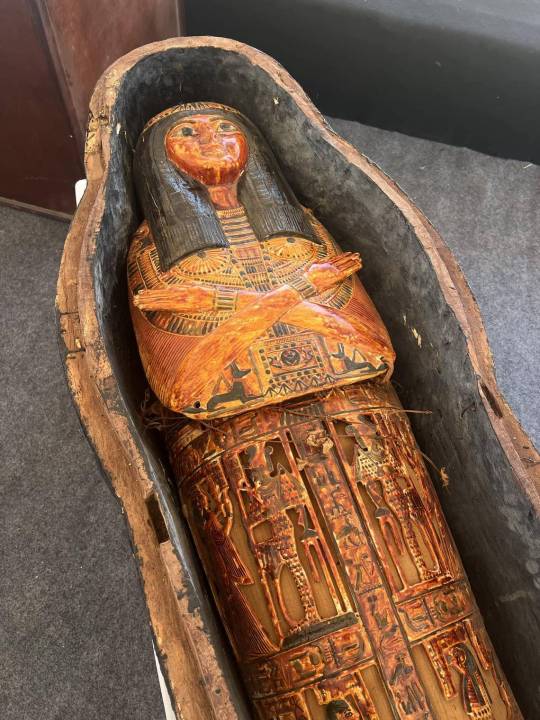
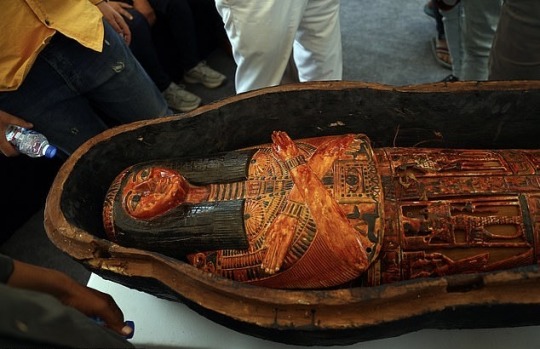
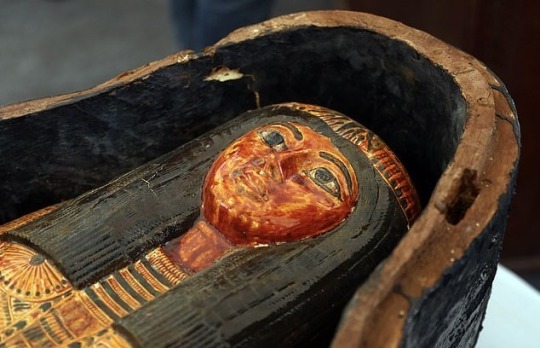
3,400-Year-Old Ancient Egyptian Cemetery Found With Colorful Coffins
Archaeologists have uncovered an Ancient Egyptian cemetery dated to more than 3,000 years ago containing the colorful coffin of a high priest's daughter and preserved mummies, among hundreds of other finds.
Researchers unearthed the cemetery at the Tuna el-Gebel necropolis, located almost 170 miles south of Cairo in Minya Governate, Egypt's Ministry of Tourism and Antiquities announced in a statement on Sunday.
The cemetery, which dates back to the New Kingdom (16th-11th centuries B.C.) of ancient Egypt, was used as a burial ground for senior officials and priests during the period, according to archaeologists.
The cemetery was uncovered during excavations that began last August in the Al-Ghuraifa area of Tuna El-Gebel and features "many tombs" that have been carved into rock.
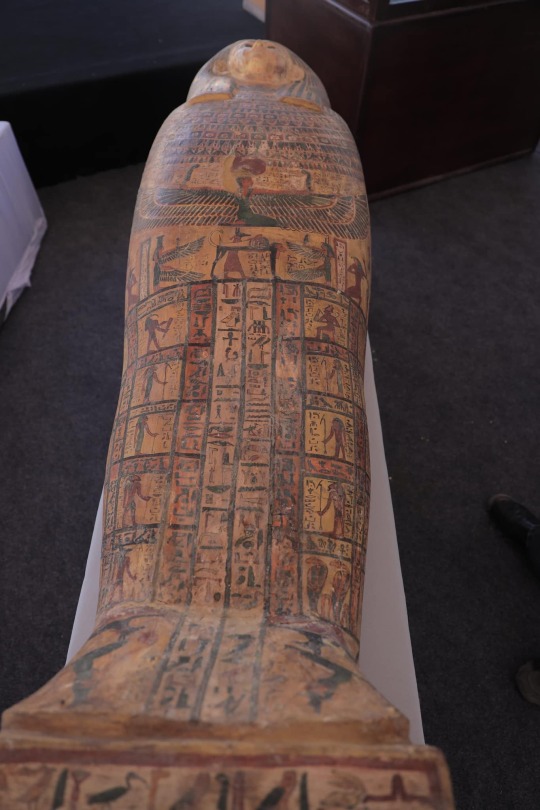
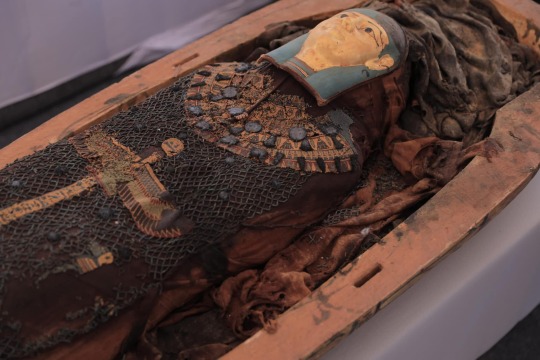
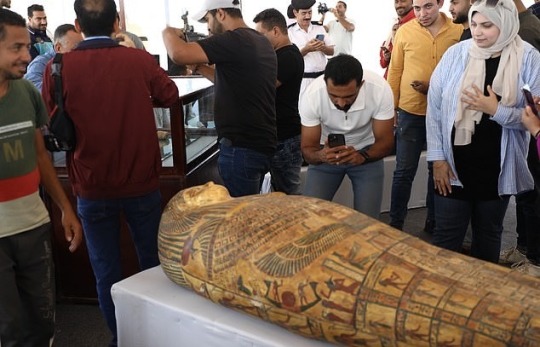
Researchers have also made hundreds of archaeological finds at the site, including stone and wooden coffins—some of which contained mummies—amulets, ornaments and funerary figurines.
One of the most notable finds at the cemetery is a colorful, engraved coffin belonging to the daughter of a high priest of the ancient Egyptian god Djehuti, often referred to as Thoth.
This deity, commonly depicted as a man with the head of an ibis or baboon, was a key figure in ancient Egyptian mythology and played several prominent roles. For example, Thoth was credited with the invention of writing and is also believed to have served as a representative of the sun god Ra.
Next to the coffin of the high priest's daughter, archaeologists found two wooden boxes containing her canopic jars, as well as a complete set of "ushabti" statues.
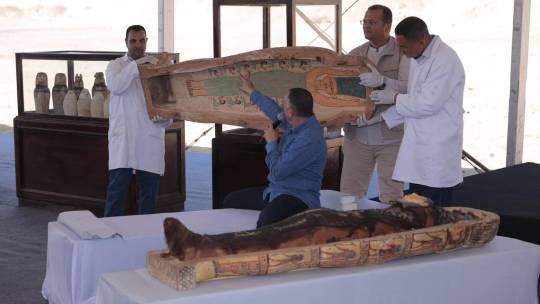
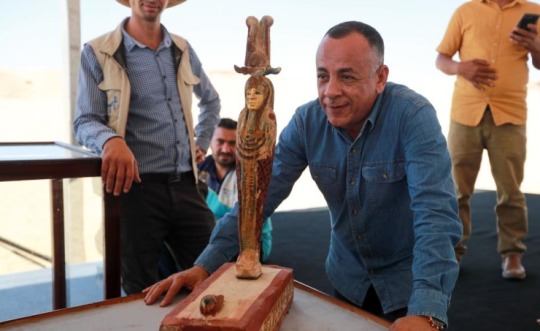
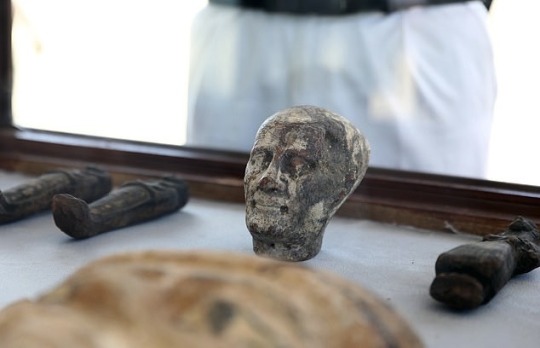
Canopic jars were vessels used by the ancient Egyptians to store the organs removed from the body in the process of mummification—the lungs, liver, intestines and stomach—in order to preserve them for the afterlife.
Ushabti statues, meanwhile, were figurines used in ancient Egyptian funerary practices that were placed in tombs in the belief that they would act as servants for the deceased in the afterlife.
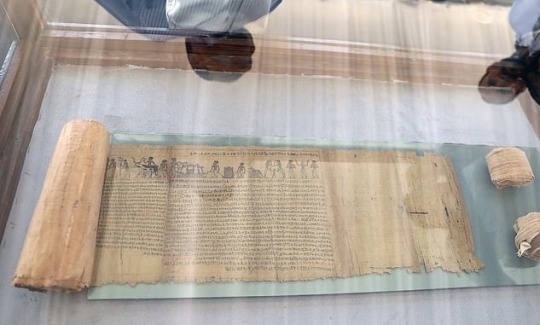
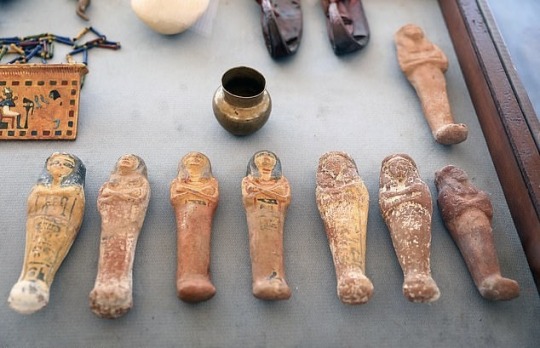
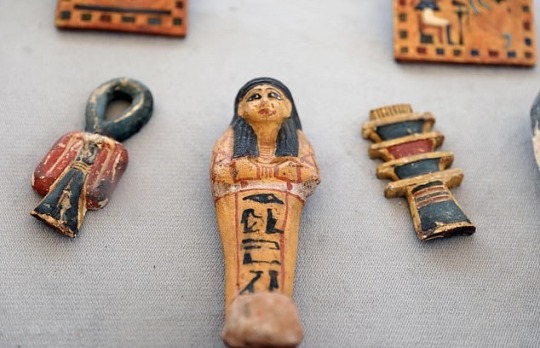
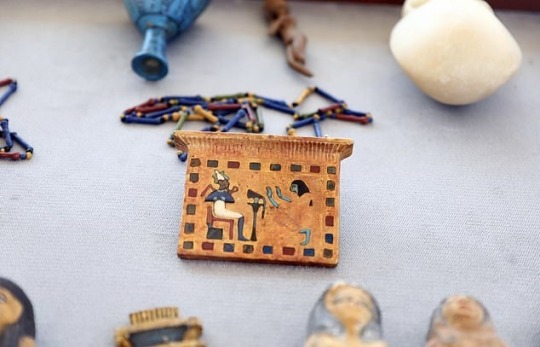
Archaeologists also made another particularly fascinating find at the New Kingdom cemetery: a complete and well-preserved papyrus scroll measuring approximately 42-49 feet in length that features information related to the Book of the Dead.
The Book of the Dead is a collection of ancient Egyptian funerary texts consisting of spells or magic formulas that were placed in tombs. These texts were thought to protect and aid the deceased in the afterlife. They were generally written on papyrus, a material similar to thick paper that was used as a writing surface in ancient times.
Mostafa Waziri, secretary general of the Supreme Council of Antiquities, said in the statement that the discovery of the cemetery is an "important" find.
By Aristos Georgiou.
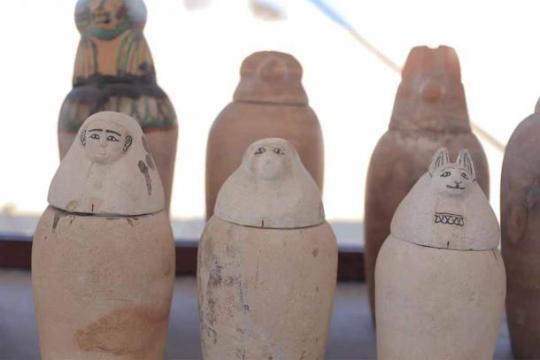
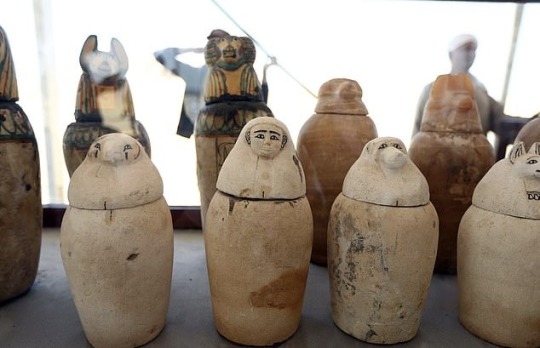
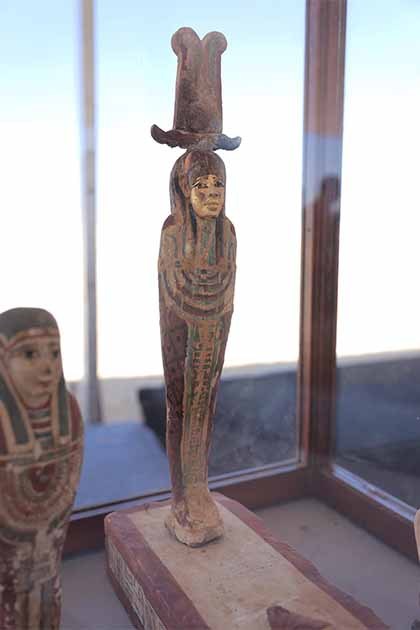
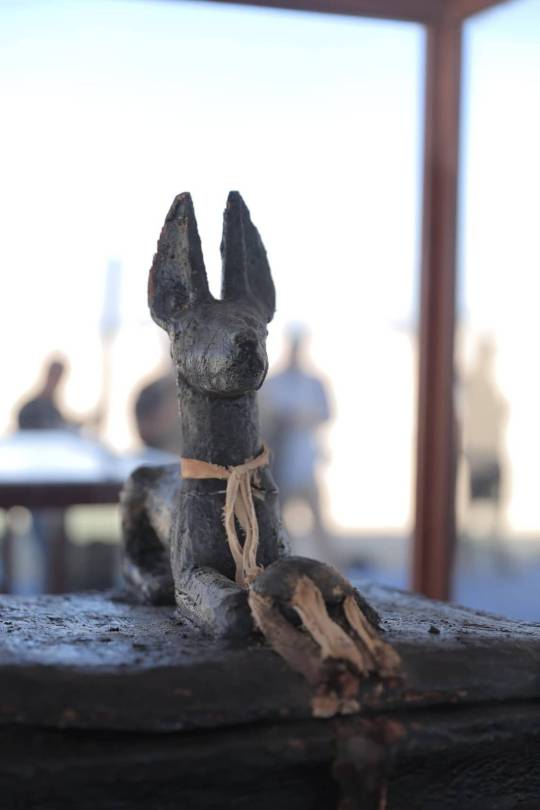
#3400-Year-Old Ancient Egyptian Cemetery Found With Colorful Coffins#Tuna el-Gebel necropolis#Minya Governate#ancient grave#ancient tomb#ancient cemetery#ancient necropolis#book of the dead#canopic jars#Egyptian god Djehuti#high priest#high priestess#ancient artifacts#archeology#archeolgst#history#history news#ancient history#ancient culture#ancient civilizations#ancient egypt#egyptian history#egyptian gods#egyptian mythology#egyptian art
189 notes
·
View notes
Text









Zane Ro’Meave Mood Board
#aphmau#minecraft diaries#aphmau fandom#mcd#minecraft diaries aphmau#aphmau mcyt#mcd aphmau#mcyt#aphblr#aphverse#zane ro'meave#zane aphmau#zane mcd#mood board#pinterest#aesthetic#high priest
38 notes
·
View notes
Text
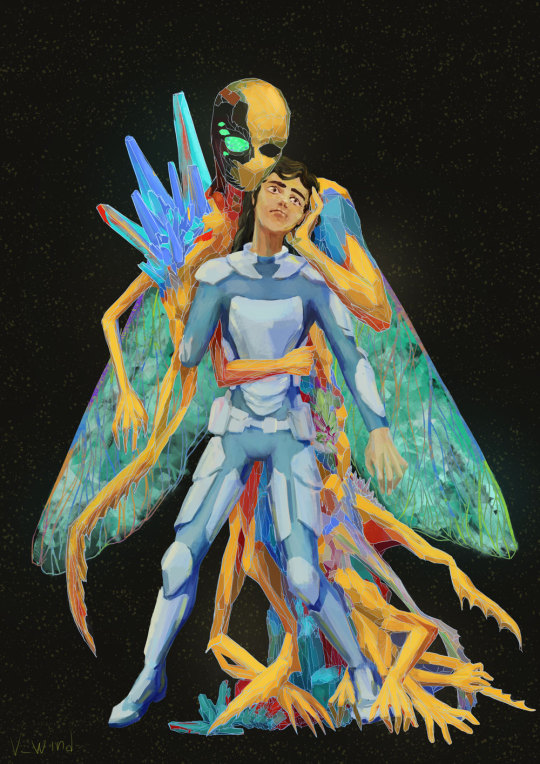
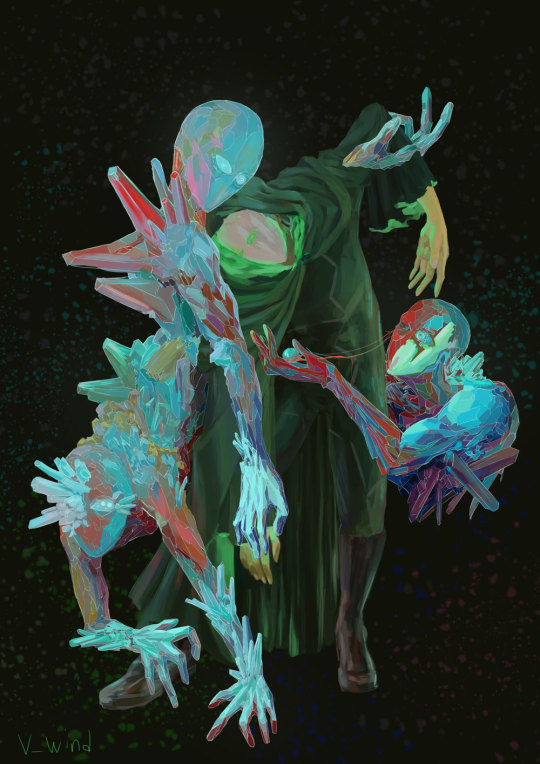
they really need support
#parahumans#worm web serial#worm fanart#eidolon#taylor hebert#high priest#queen administrator#shards#my art
447 notes
·
View notes
Text

Transportation of the Ark of the Covenant Containing the Tablets of the Law (Detail from The Room of the Ark in the Palatine Gallery, Palazzo Pitti, Florence, Italy) by Luigi Ademollo
#ark of the covenant#art#luigi ademollo#frescoes#fresco#pitti palace#palazzo pitti#florence#italy#renaissance#biblical#bible#europe#european#david#jerusalem#israel#israelites#tabernacle#procession#religion#religious art#high priest#aromatic#incense#clouds#tablets of the law#tablets of stone#city#temple
59 notes
·
View notes
Text
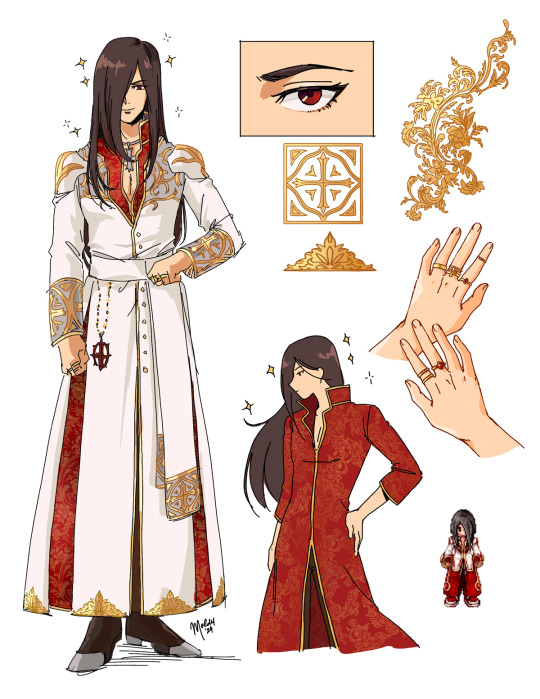
redesign of my high priest
66 notes
·
View notes
Photo
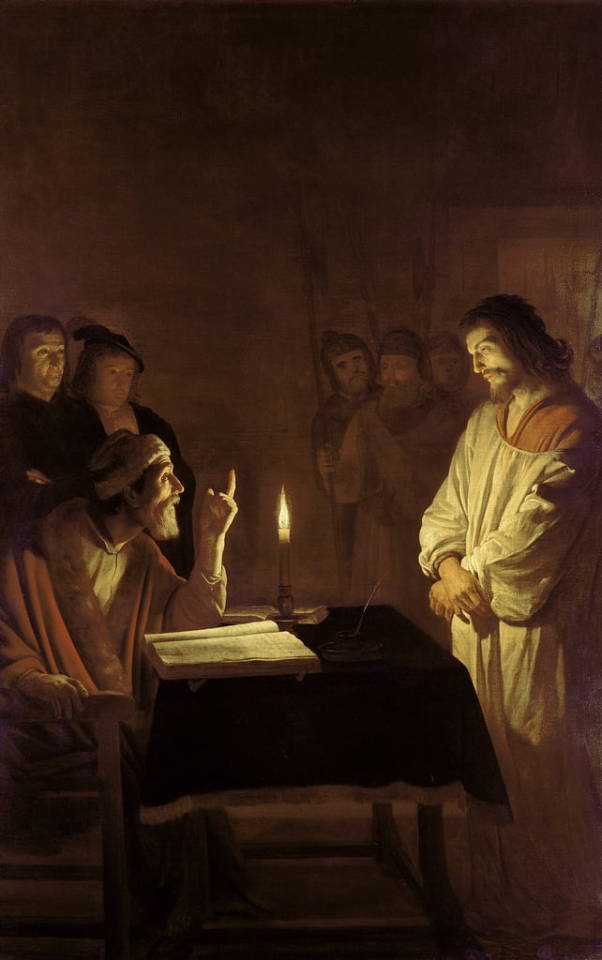
Christus vor dem Hohenpriester, 1617 von Gerrit van Honthorst (1617, Öl auf Leinwand)
#kunst#kunstwerk#art#artwork#gerrit van honthorst#religion#religiöse kunst#religious art#jesus#christ#christus#hohenpriester#high priest#gott#god#vater#father#herr#lord#bibel#bible#kerze#candle#beten#pray#christentum#christianity#ölgemälde#oil painting
56 notes
·
View notes
Text
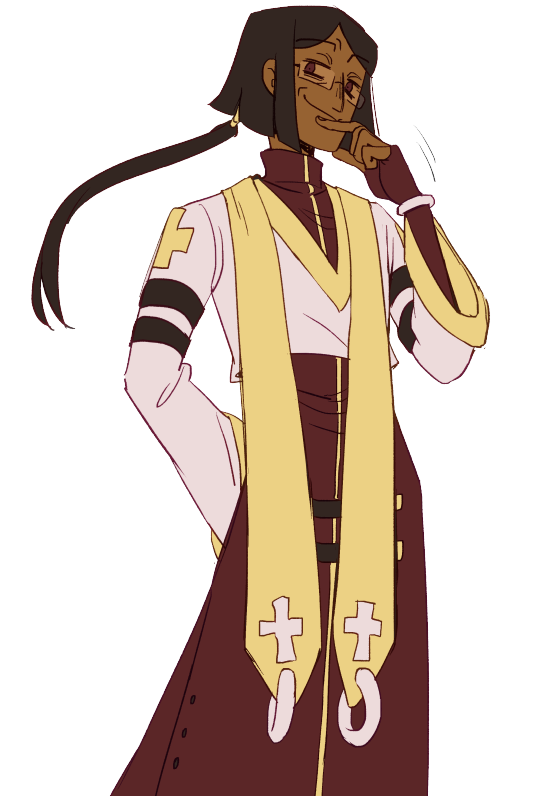
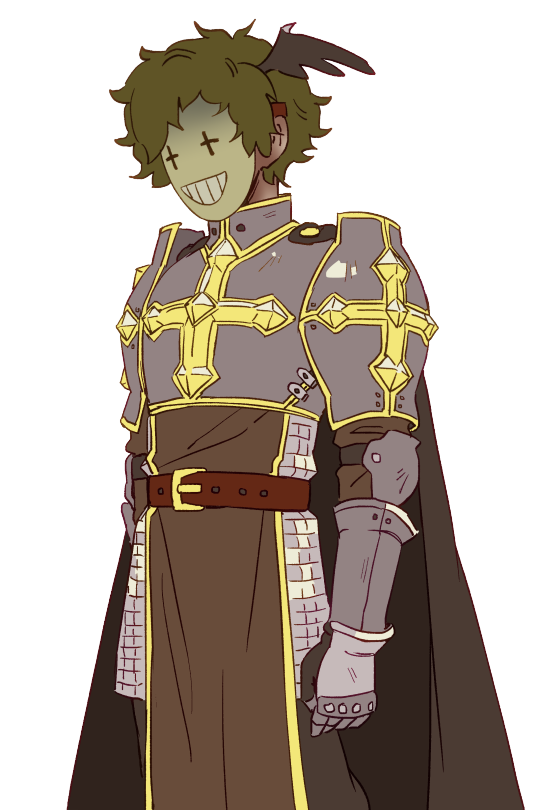
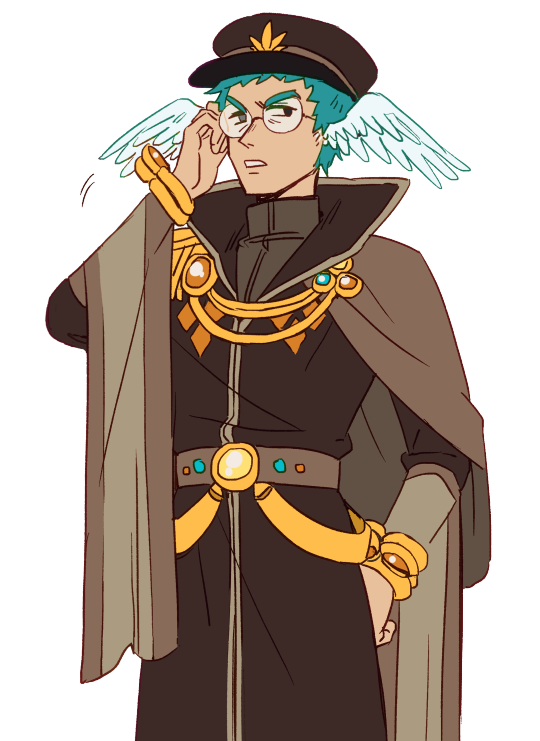
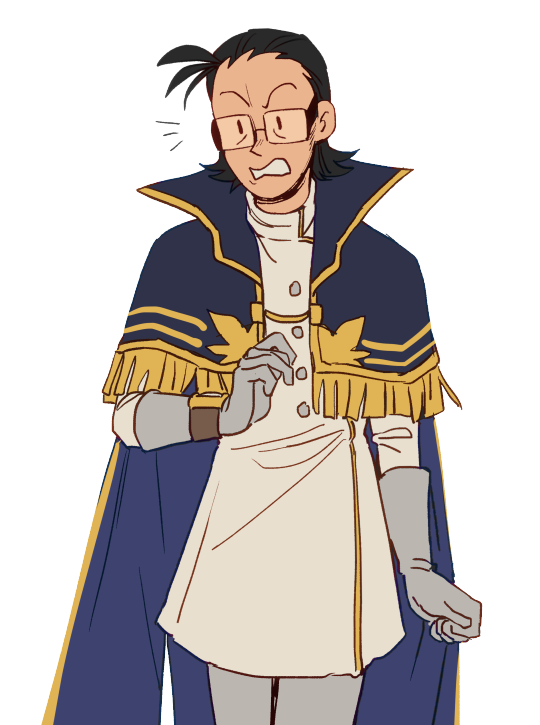
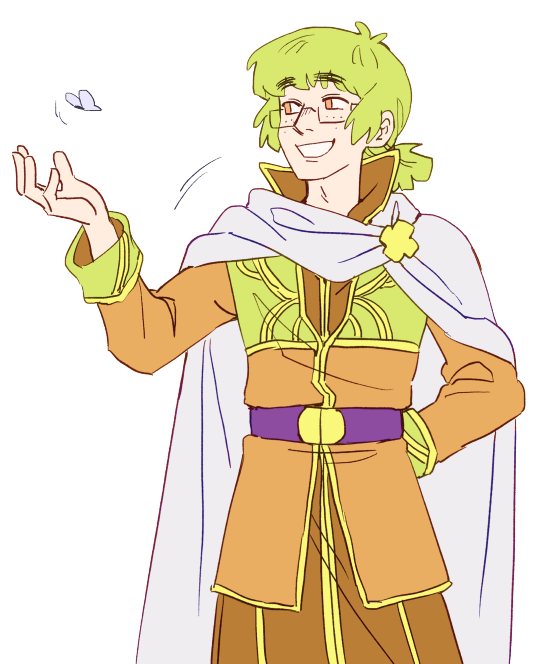
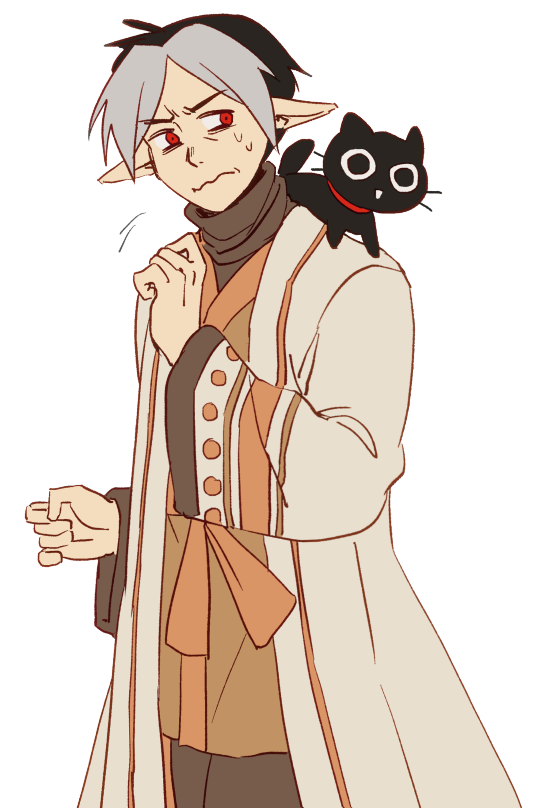
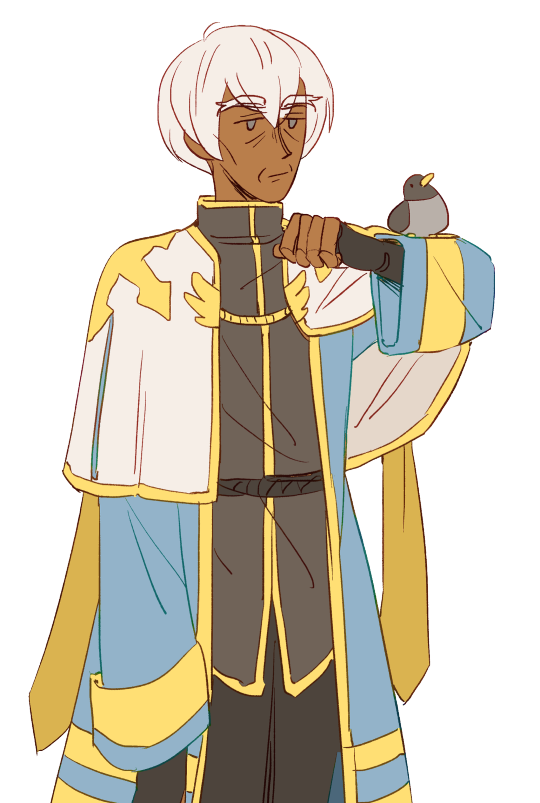

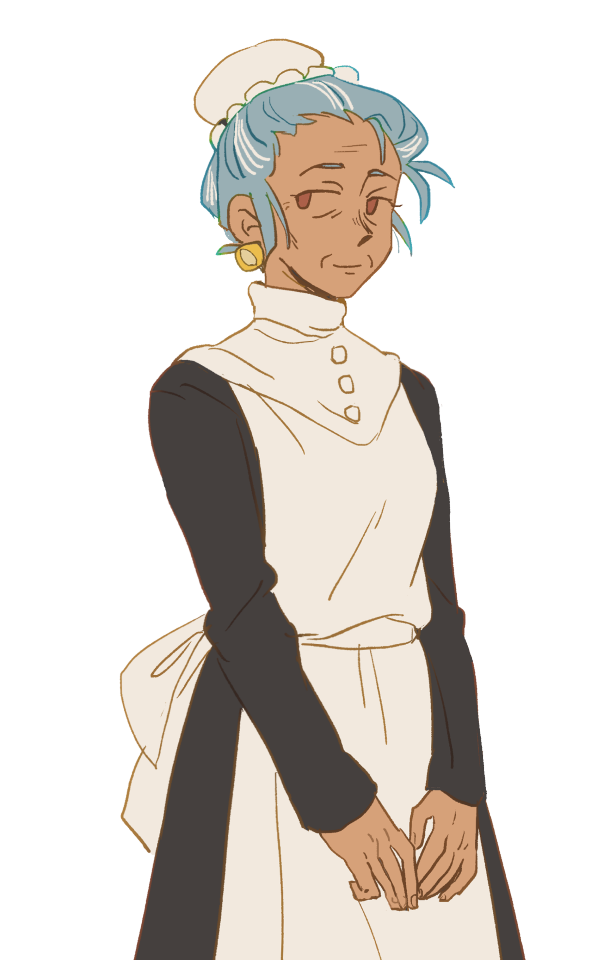
my ragnarok online NPCs... does anyone remember them
#ragnarok online#salii#argon#leicester#helix#linus#sono#larkin#voski#josephine#i swear this is ro#arch bishop#lord knight#sorcerer#high wizard#high priest#soul linker#warlock#maid
46 notes
·
View notes
Text

A dance for you, my love
#ask me about my ocs#ragnarok online#gtro 2.0#raphcon#not my oc#digital art#my art#high priest#lovely aren't they
7 notes
·
View notes
Text

#artfight#artfight 2024#team seafoam#ragnarok online#high priest#selentia#popo's qt bebe#attack for poporin
10 notes
·
View notes
Text

Jesus in the House of Annas
Artist: José de Madrazo y Agudo (Spanish, 1781-1859)
Date: 1803
Medium: Oil on Canvas
Collection: Museo del Prado, Madrid, Spain
Jesus Is Taken to Annas, the High Priest
After Jesus was arrested, He was taken first to Annas for a preliminary investigation, proving that Annas’s high priestly status stretched beyond the official position: “Then the detachment of soldiers with its commander and the Jewish officials arrested Jesus. They bound him and brought him first to Annas, who was the father-in-law of Caiaphas, the high priest that year” (John 18:13). When Annas had finished questioning Jesus about “his disciples and his teaching,” he sent Him to Caiaphas (John 18:19–24).
#painting#oil on canvas#fine art#artwork#christianity#biblical passage#holy bible#high priest#jesus#soldiers#gospel of john#new testament#jose madrazo y agudo#spanish painter#1800's#christian art#spanish art
15 notes
·
View notes
Text


Zigur, the High Priest of Melkor
#hero forge#fantasy#magic#zigur#sauron#wizard#priest#high priest#mask#knife#heart#human sacrifice#maiar#lord of the rings#silmarillion
11 notes
·
View notes